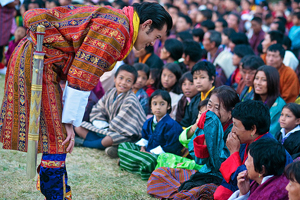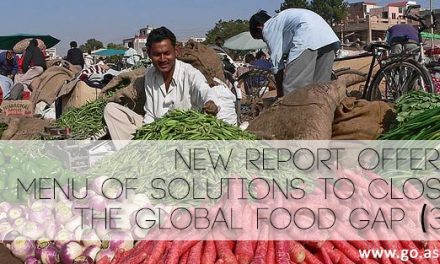Obsessed with happiness – In an effort to increase happiness among its people, Bhutan studies, quantifies, and defines what it means to be happy. Author, Peter Singer
The small Himalayan kingdom of Bhutan is known internationally for two things: high visa fees, which reduce the influx of tourists, and its policy of promoting “gross national happiness” instead of economic growth. The two are related: More tourists might boost the economy, but they would damage Bhutan’s environment and culture, and so reduce happiness in the long run.
When I first heard of Bhutan’s goal of maximising its people’s happiness, I wondered if it really meant anything in practice, or was just another political slogan. Last month, when I was in the capital, Thimphu, to speak at a conference on “Economic Development and Happiness”, organised by Prime Minister Jigme Y Thinley and co-hosted by Jeffrey Sachs, Director of The Earth Institute at Columbia University and Special Adviser to United Nations Secretary-General Ban Ki-moon, I learned that it is much more than a slogan.
Never before have I been at a conference that was taken so seriously by a national government. I had expected Thinley to open the conference with a formal welcome, and then return to his office. Instead, his address was a thoughtful review of the key issues involved in promoting happiness as a national policy. He then stayed at the conference for the entire two and a half days, and made pertinent contributions to our discussions. At most sessions, several cabinet ministers were also present.
Since ancient times, happiness has been universally seen as a good. Problems arise when we try to agree on a definition of happiness, and to measure it.
Defining happiness
One important question is whether we see happiness as the surplus of pleasure over pain experienced over a lifetime, or as the degree to which we are satisfied with our lives. The former approach tries to add up the number of positive moments that people have, and then to subtract the negative ones. If the result is substantially positive, we regard the person’s life as happy; if negative, as unhappy. So, to measure happiness defined in that way, one would have to sample moments of people’s existence randomly, and try to find out whether they are experiencing positive or negative mental states.
A second approach asks people: “How satisfied are you with the way your life has gone so far?” If they say they are satisfied, or very satisfied, they are happy, rather than unhappy.
But the question of which of these ways of understanding happiness best captures what we should promote raises fundamental questions of value.
On surveys that use the first approach, countries like Nigeria, Mexico, Brazil, and Puerto Rico do well, which suggests that the answer may have more to do with the national culture than with objective indicators like health, education, and standard of living. When the second approach is taken, it tends to be the richer countries, like Denmark and Switzerland, that come out on top. But it is not clear whether people’s answers to survey questions in different languages and in different cultures really mean the same thing.
We may agree that our goal ought to be promoting happiness, rather than income or gross domestic product, but, if we have no objective measure of happiness, does this make sense? John Maynard Keynes famously said: “I would rather be vaguely right than precisely wrong”. He pointed out that when ideas first come into the world, they are likely to be woolly, and in need of more work to define them sharply. That may be the case with the idea of happiness as the goal of national policy.
If you wish to read the whole story, please click here
Source: Al Jazeera










